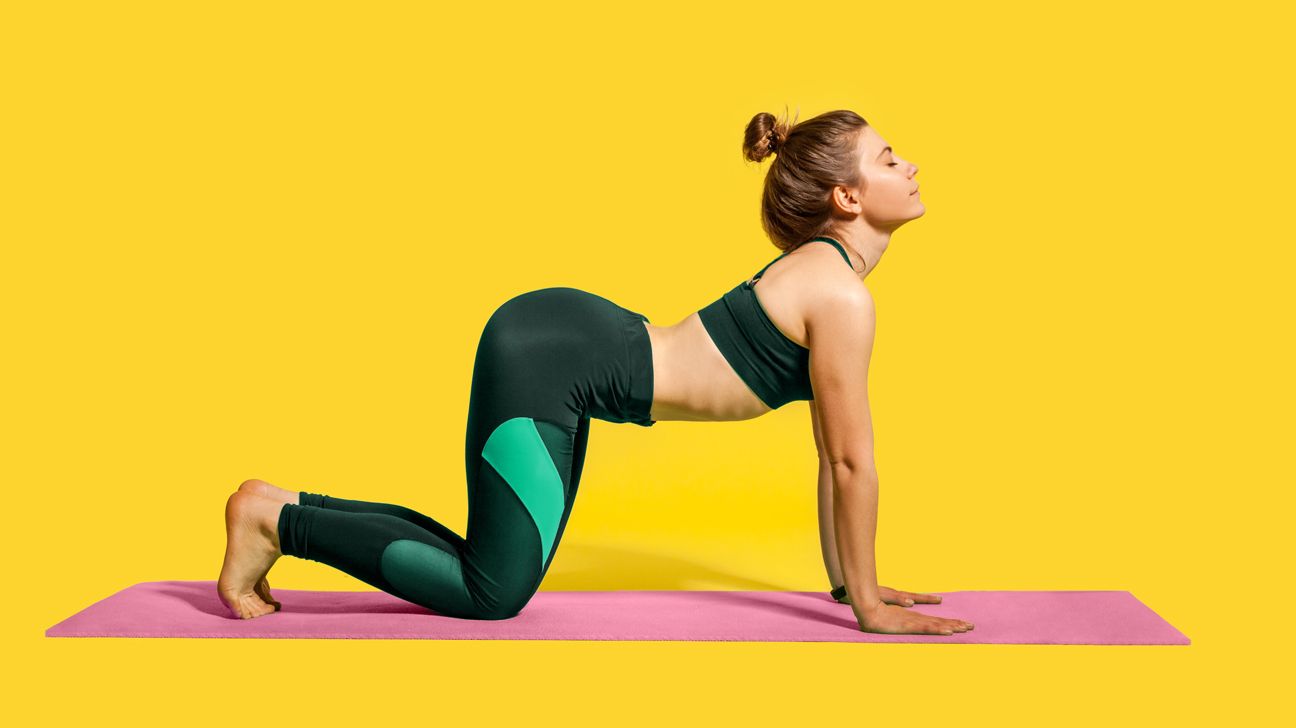You don’t have to be the Yoda of yoga to reap major mental health benefits. Yoga can be an amazing form of therapy for beginners, experts, and everyone in between. Here’s how yoga therapy can help you feel better inside and out.

Yoga is pretty much the PB&J of workouts — it’s the perfect combo. The blend of exercise and meditation can help you exercise your body and mind at the same time.
Exercise is a natural way to pump up the volume on your serotonin production. Some research, including a small 2011 study, suggests this can help ease depression symptoms.
Meditation can slow down your thoughts and clear your mind, and research suggests it has mental health benefits.
Yoga therapy uses the same tools as other forms of yoga. It just focuses more on each person’s individual needs. The practice can help address your unique physical, emotional, or mental concerns.
Yoga therapy can help with:
- mind-body connection
- overall well-being
- physical pain
- depression
- anxiety
- stress
Where can I do yoga therapy?
You can do yoga therapy solo or in a group setting. If an in-person sesh isn’t your thing, you can opt for virtual yoga or connect with a yoga therapist online. You can also check out yoga or meditation apps to see if they offer yoga therapy.
Traditional yoga and yoga therapy can both be super soothing and beneficial, but there are some big differences between the two. It really comes down to individual results.
A traditional yoga instructor will focus on the methods and practices of yoga. These classes tend to be geared to a general audience. But in yoga therapy, the therapist will focus on your individual emotional and physical needs.
A yoga therapist will assess your needs before a session so they can optimize your experience. They’ll also go over various healing tools, such as:
- yoga postures
- guided energy work
- meditation techniques
- breath awareness and control
The therapist will pick the right balance of these tools based on your needs, says certified yoga therapist Sadie Grossman.
A yoga therapist will also give you advice on how to practice on your own.
“I’m a firm believer in patients leaving a session with a tangible intervention that they can practice on their own, making them feel empowered,” says Grossman.
Stress reduction
Life is often a stress fest, and yoga therapy is here to help. A consistent practice can help you stay calm, focused, and positive.
In a small 2012 study of 72 “distressed” women, those who practiced yoga once or twice per week for 3 months showed greater improvements in measures of stress and quality of life than those who didn’t do yoga.
Anxiety relief
Many people turn to yoga to reduce anxiety. And with good reason! The calming sensations, focused breathing, and slow movements can help lower anxiety levels.
In a small 2009 study, 34 women who were referred to a yoga clinic for anxiety practiced yoga twice a week for 2 months, while a control group of 31 women didn’t practice yoga. Afterward, the yoga group showed greater decreases in anxiety levels than the control group.
Improved eating habits
Meditation and yoga both encourage mindfulness, and some research suggests that mindfulness can contribute to healthier eating habits and overall lifestyle improvements. This is why yoga is often used in eating disorder recovery — it can help you have a healthier relationship with food and your body.
Bonus: Mindful eating can also help you regulate your blood sugar levels and keep your weight in a healthy range.
Better mood
It’s 100 percent OK to have a crappy day. It happens. Thankfully, yoga therapy can help you nip those bad vibes in the bud. It can help you slay those endorphins and leave you feeling a heckuvalot better.
A 2017 study found that certain yoga poses can increase energy and self-esteem. A full-on yoga therapy sesh? Even better.
Depression can make anyone feel cut off and isolated. But remember: You are not alone. About 17.3 million adults in the United States are affected by depression every year. Studies suggest that yoga could help you feel better. Here’s how.
Depression can really take a toll on your energy level and ability to concentrate. Yoga might give you the boost you need to get back to business.
Yoga can also help on a chemical level — it can decrease your levels of the stress hormone cortisol, which is also linked to depression.
Pro tip: Grossman suggests group sessions if you’re experiencing depression, since the group setting can help combat a sense of isolation.
Yes! Yoga can be used as a type of therapy. But keep in mind that it’s not a cure-all. Yoga therapy might not replace the effects of other treatments (like medication or psychotherapy), but it’s def worth a shot!
PSA: Yoga therapy might work best when combined with other forms of treatment.
Yoga therapy can give your mental and physical health a major glow-up. Here’s a deep dive into all the pros and cons to help you decide if it’s right for you.
Pros:
- helps you establish goals
- friendly for all fitness levels
- can improve overall health
- works out your mind and body
- can reduce stress and anxiety
- can ease symptoms of depression
Cons:
- not the right fit for everyone
- might be challenging on a physical and emotional level
- can be pricey (but this depends on the studio or therapist)

